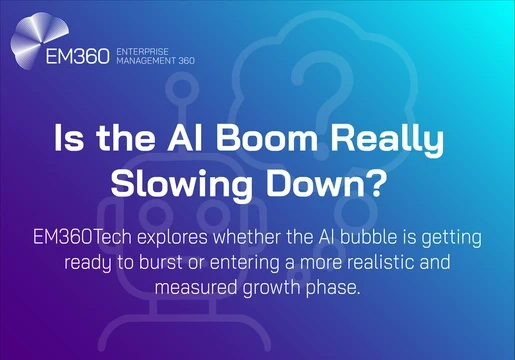Conversational AI is becoming increasingly prevalent in the enterprise, with more companies opting to implement the technology. In fact, Gartner insists that the conversational AI market has benefited from five years of "hype."

What is conversational AI?
In effect, conversational AI acts as an intelligent bridge between companies and consumers. By automating the initial aspect of the communication process, the technology allows organisations to create personalised customer experiences at scale. In order to deliver this, many companies are now making use of messaging apps, digital assistants, and chatbots. In turn, this empowers human agents who can subsequently focus on more complex tasks that specifically require human input. Conversational AI is also improving the overall customer experience, according to Gartner. This optimism also translates to the technology's market value, which will reportedly rise from its initial estimated value of $3.27 billion to $27.08 billion by 2026.
Implementing conversational AI
Before implementing conversational AI, it is first worth considering whether the technology will improve operations and boost the bottom line. As a recent blog post from boost.ai notes, companies should consider implementing these tools if satisfied customers and lower employee turnover impact the top and bottom line. Next, it is integral that organisations seek out the right technology in order to scale to their requirements. While chatbots have become somewhat ubiquitous across various industries, these tools fail to go beyond the typical scripted questions and answers. On the other hand, an AI-powered virtual agent far surpasses the confines of scripts. By recognising context, concepts, and meaning, these tools are able to truly understand a customer's underlying request. Moreover, virtual agents can leverage user authentication capabilities in order to act on the information provided by customers. In turn, this empowers the customer so that individuals are able to resolve issues and requests automatically.
Trust the tech
Finally, boost.ai observes that it is vital to champion the technology - and don't panic. For many companies, however, it is often challenging to close the gap between recognising the potential of AI and actually implementing it in practice. Indeed, many companies are reportedly struggling to separate the AI hype from reality. With this in mind, boost.ai insists that new technologies require validation and endorsement from the highest level of organisational leadership. Overall, it is evident that conversational AI requires organisations to completely rethink their business model and how they can best serve customers. If the technology is implemented successfully, however, digital organisations can ultimately benefit from improved productivity, efficiency, and agility.
Hoping to cross the AI chasm? Take a look at Dr David Naylor's opinion piece, in which the Founder of Humanotics demystifies AI







Comments ( 0 )